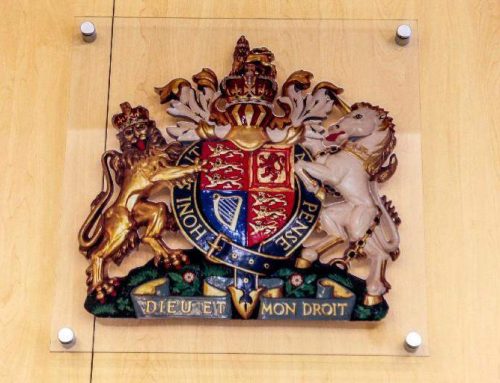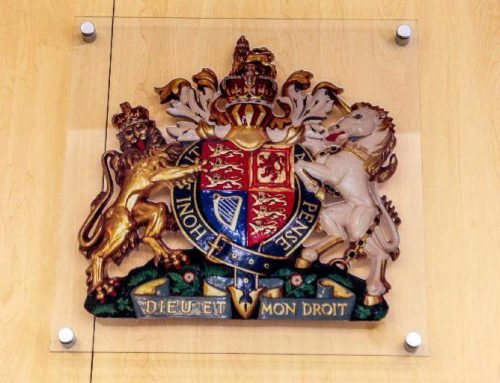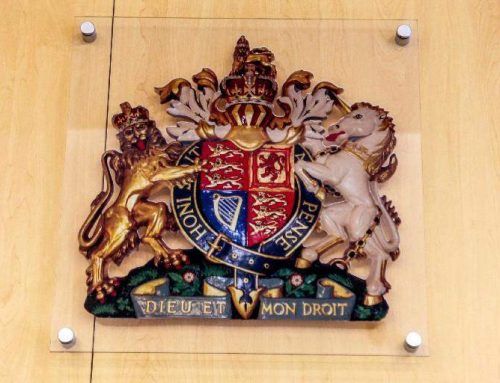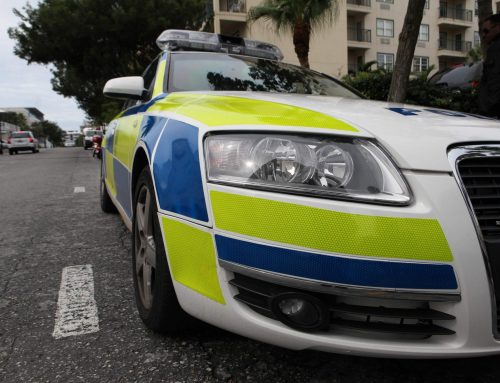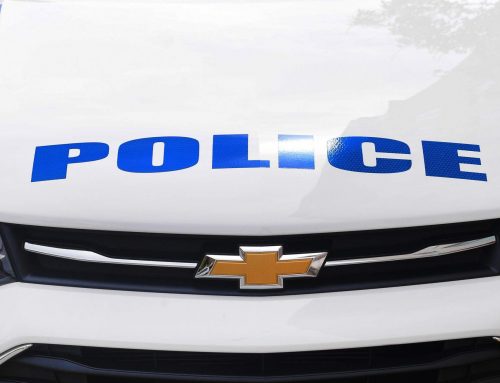The Royal Gazette joined the Bermuda Police Service on a weekend night in Hamilton for a first-hand view of bad driving and carnage on the islands roads. Here is what we discovered:
Bikes hurtling into Hamilton, a motorcyclist arrested in the street on suspicion of drink driving, a tourist with a leg injury and a crash that caused the death of a popular musician.
It all happened during a late shift with the Bermuda Police Service, a short, sharp shock that gave me a new perspective of the typical Friday night in and around the city.
Happy hour it was not red and blue emergency lights and sirens competed with the flashing lights and loud music in bars, patients in pain and attended to by paramedics contrasted with scenes of revellers having fun after a long week at work.
I shadowed the Roads Policing Unit on their late, late shift from 4pm to 2am.
After a briefing by Acting Inspector Dorian Astwood, the night on patrol started with a speed trap at the gas station on Front Street at about 8.30pm.
I did not expect too much excitement so early in the evening, but I was wrong. Inside ten minutes, PC Roger Fox got on his radio and called in: Out of the city, out of the city. Bike going out of the city.
A chase bike flew after the suspicious bike and pulled it over in less than 30 seconds.
Mr Astwood said: Almost every accident involves speed. People are in a hurry to go nowhere, but our roads are unique, they work against you.
Concealed entrances, people pulling out of junctions without looking, the design of the roads and adverse cambers dont always work for vehicles.
Mr Astwood added that speed cameras could help slow traffic down. He said: My personal thought is it could be used as an enforcement tool like they do in the US and UK.
If you know there are cameras, it forces you to slow down.
Mr Astwood added that proper rider training was key for those who want to speed.
He explained: I know that it saved my life. I am a bit of a Mad Max. I knew I had to take it to the track or become a cop.
It doesnt make you drive faster, actually, it probably slows you down.
Another bike came into the city at an even faster speed than the first just 15 minutes later and the chase bike was on its tail in seconds.
I joined Mr Astwood in his police van and followed, which led us to the sidewalk opposite Front Streets Bermuda Bistro at the Beach. Officers were dealing with an inebriated woman who could barely stand up. She shouted: Why are you arresting me though?
No sooner was she taken to Hamilton Police Station and her bike impounded, we were on our way to the scene of another crash on Reid Street.
Bermuda Fire and Rescue were already on the scene, where a woman tourist sat on the sidewalk with an injured knee.
She told officers that a motorcyclist, who was also at the scene, rode into her motorcycle and knocked her off.
The womans injuries were not serious, but she was clearly in pain and annoyed that a crash had marred her short break in Bermuda.
She was bandaged up and had some checks done on the roadside, but refused to get in an ambulance because she had no health insurance.
After the scene was cleared, we headed back to the Roads Policing Unit headquarters at Prospect to sit in on a meeting of a police undercover operation dealing with serious crime.
Officers discussed a variety of events taking place around the island that could be cause for concern.
After just a few minutes, Mr Astwood came to collect me; there had been a report of a serious collision on Middle Road near Vesey Street in Devonshire.
A motorcycle and a bicycle had collided and the cyclist had suffered serious injuries. We were on the scene within minutes and arrived just after midnight.
Paramedics crowded around a stretcher attending to one patient while another had already been rushed to the King Edward VII Memorial Hospital.
The second patient was also taken to hospital, leaving just police and forensics officers at the scene.
Forensics officers crouched to photograph every shard of glass and every broken piece of plastic strewn across the scene.
PC Fox, a traffic collision investigator, shone his flashlight on the road looking for telltale gouge marks, skid marks and anything else that might reveal the cause of the crash.
The morning air was getting cold and the mood was solemn. I talked with officers about some of the harder things they have had to deal with in their time on patrol on the roads.
Mr Astwood said: Fatality-wise, I have seen a body completely severed, body parts; people just completely flattened. Ive seen a lot, lets put it that way. Ive seen a lot.
It was close to 2am and there was nothing more to report.
Mr Astwood said officers would be processing the scene for hours, so we made our way back to Prospect.
However, I could not stop thinking about the man on the bicycle who suffered serious injuries.
I learnt four days afterwards, from the daily police media report, that he was William Moniz, 66, confirmed as the sixth road fatality of 2018.
A later obituary revealed he was a popular musician, well loved in the community and known as Dennis.
While I still have no idea what caused the crash, being there to see the horrors police officers see on a regular basis gave me a renewed sense of how important the Drive for Change campaign and its work to improve road safety is.



